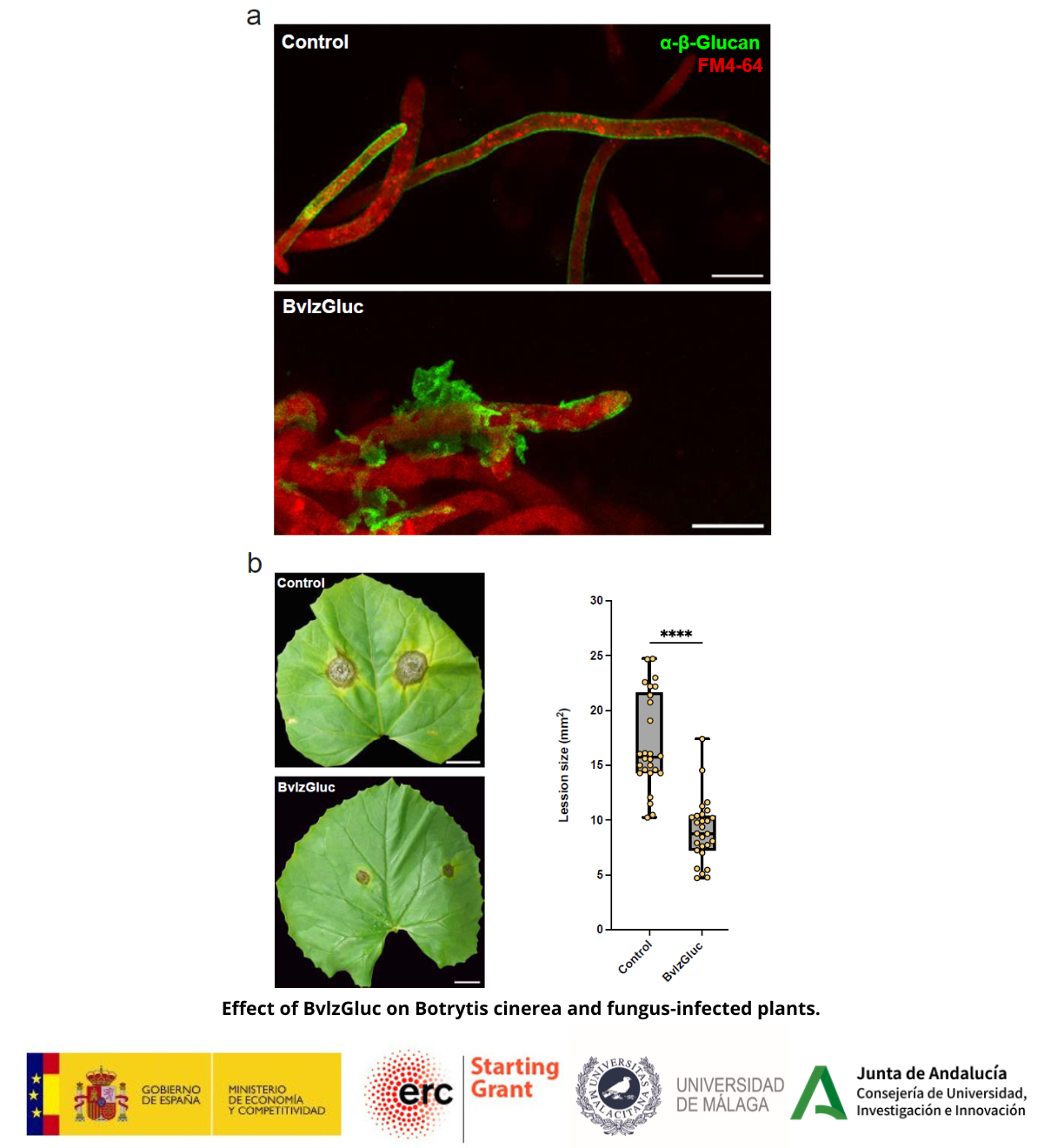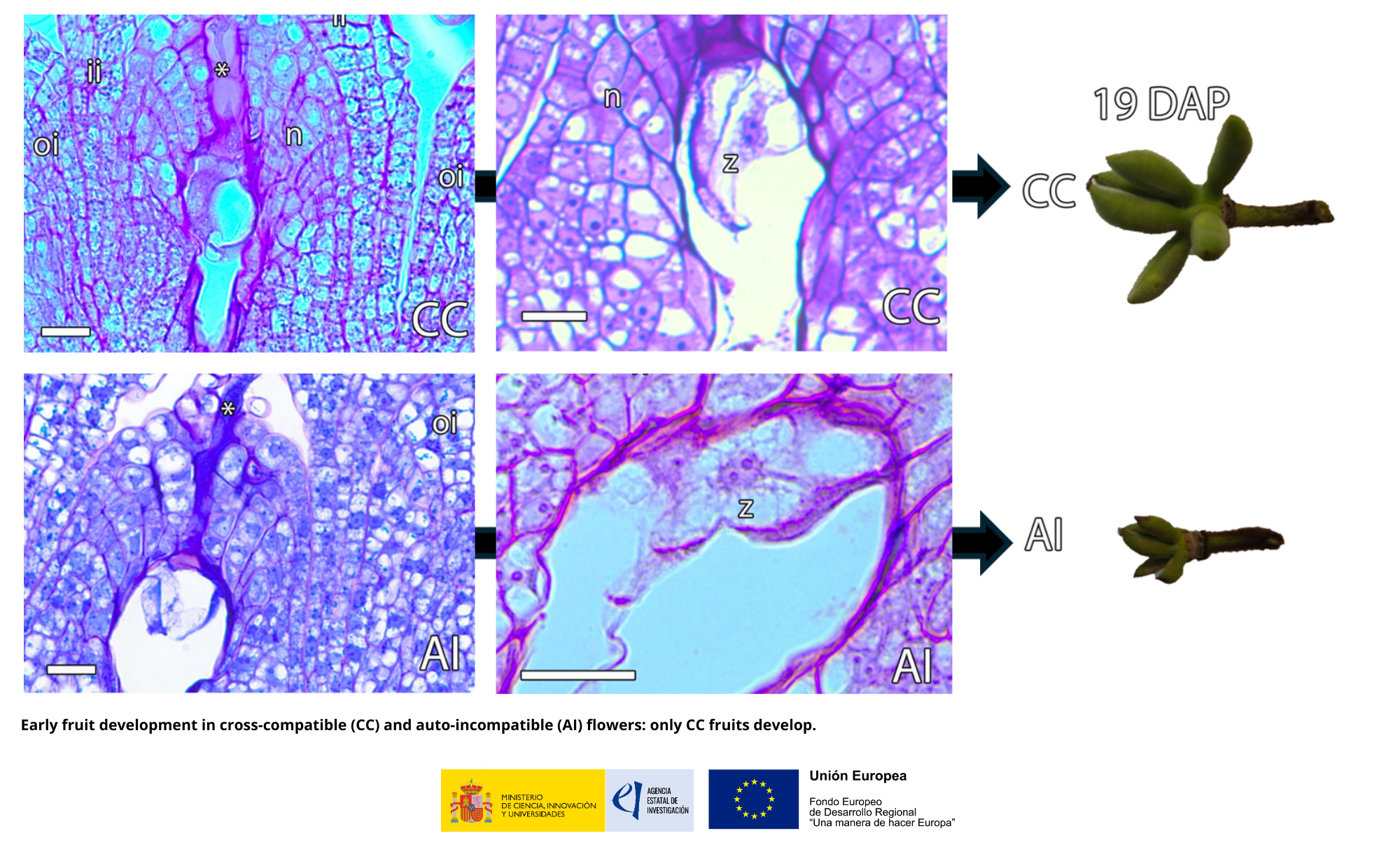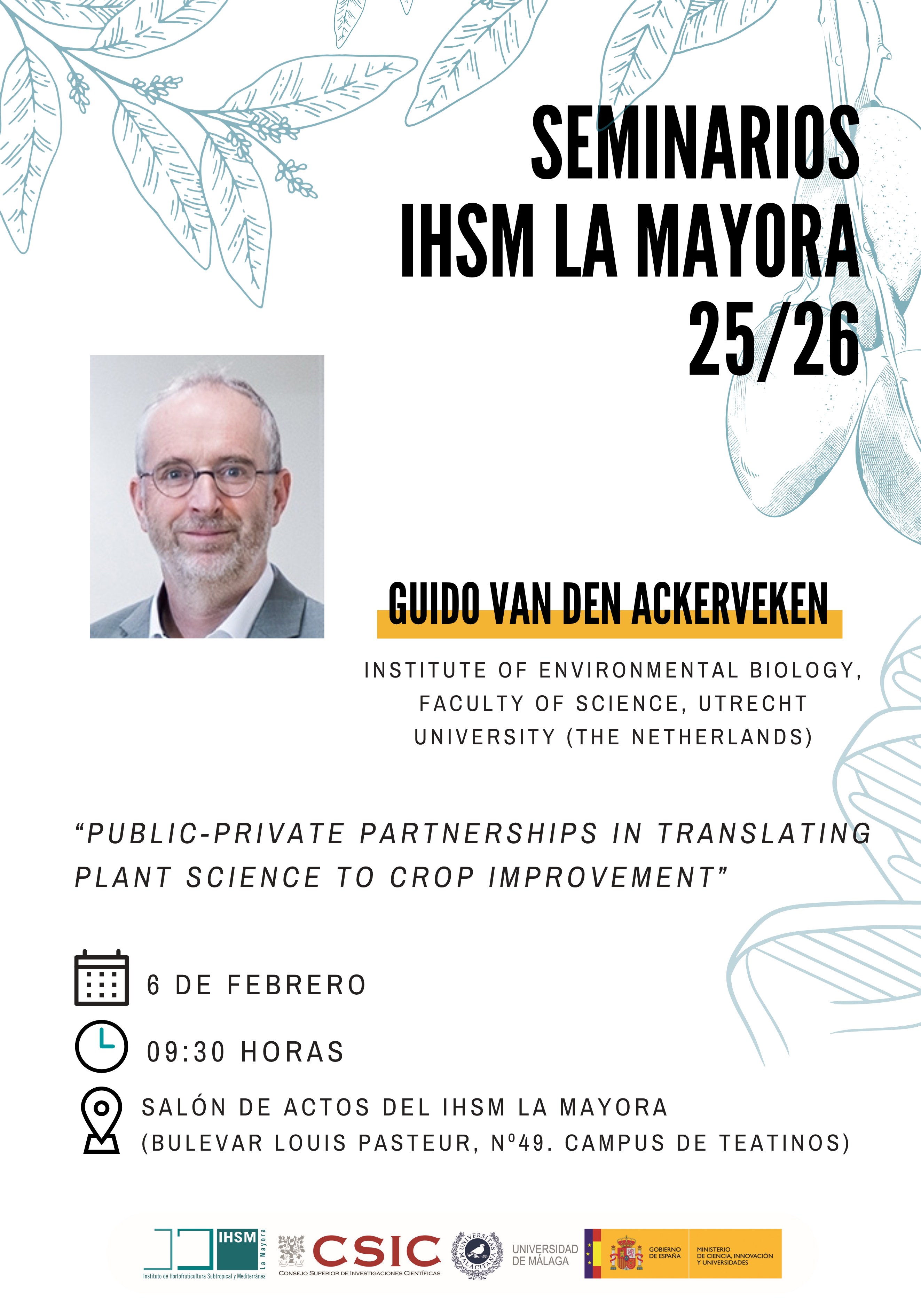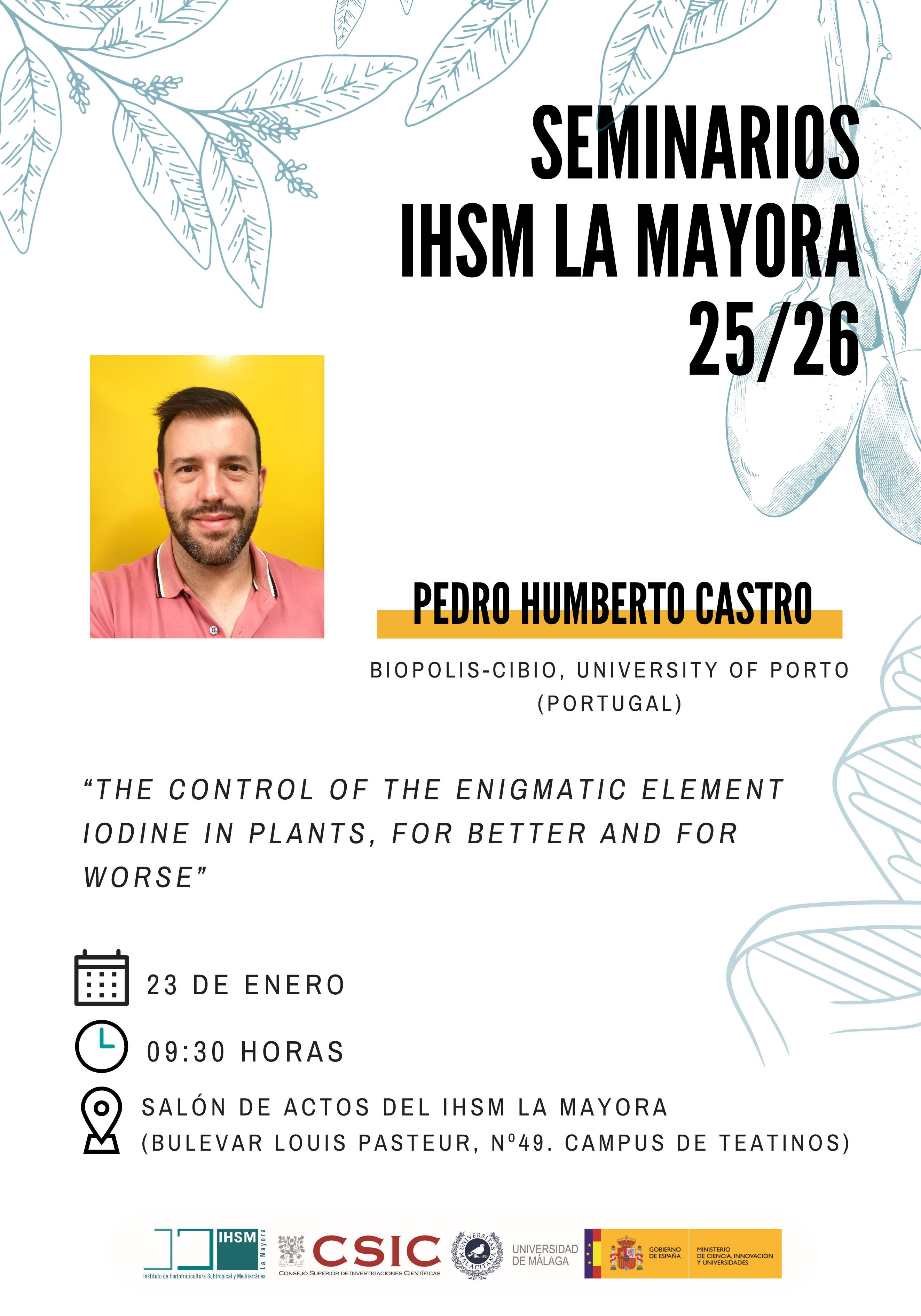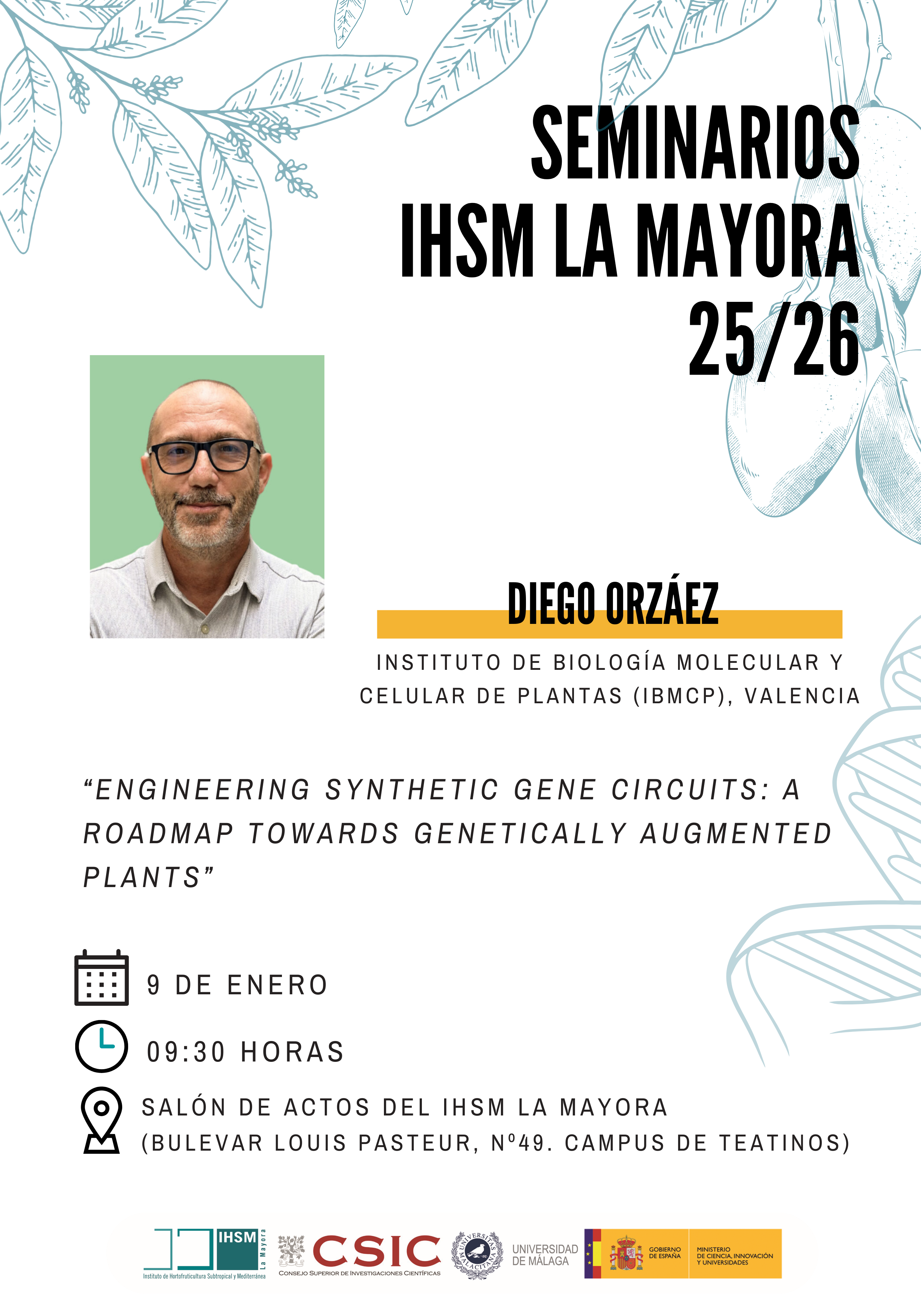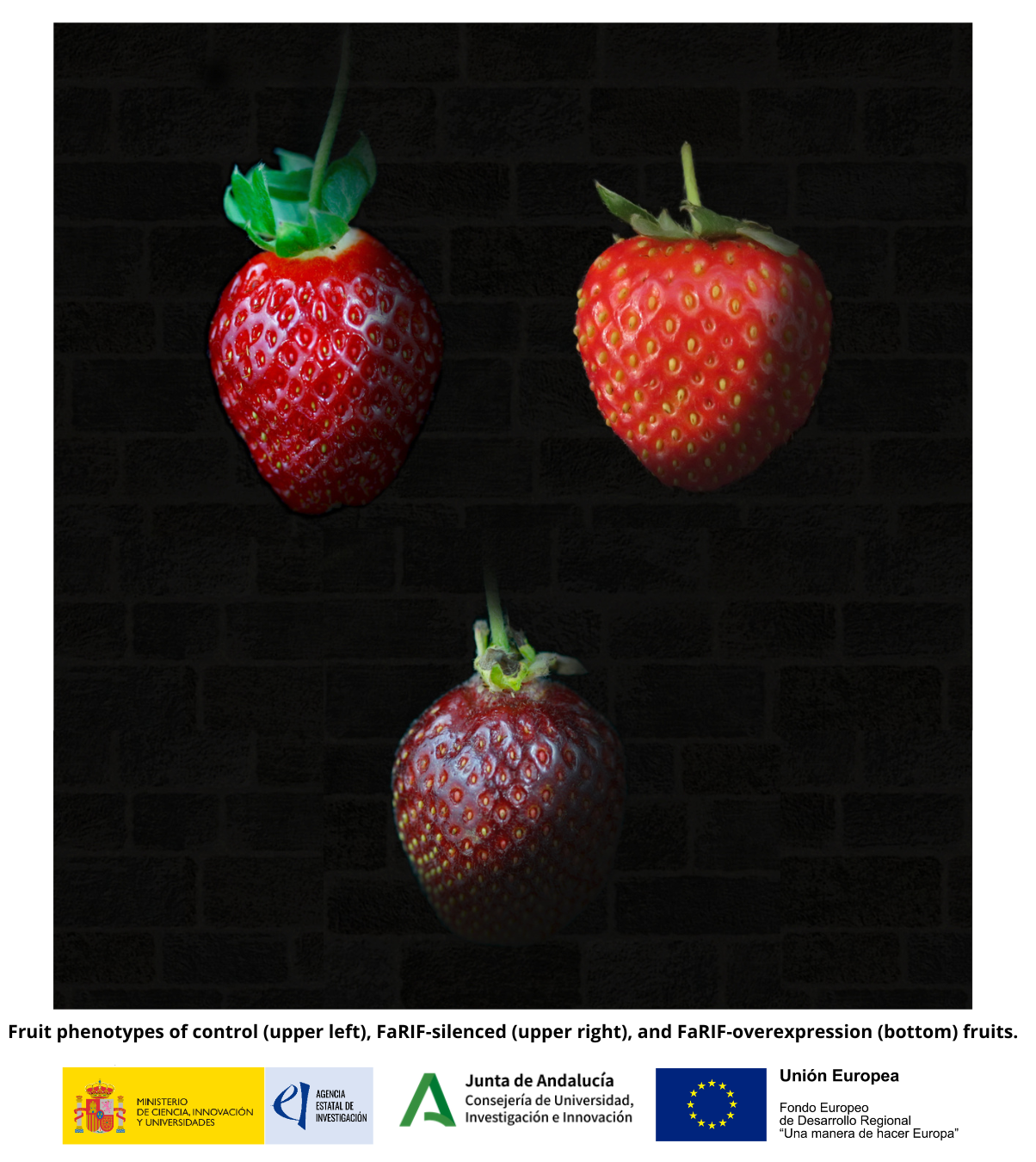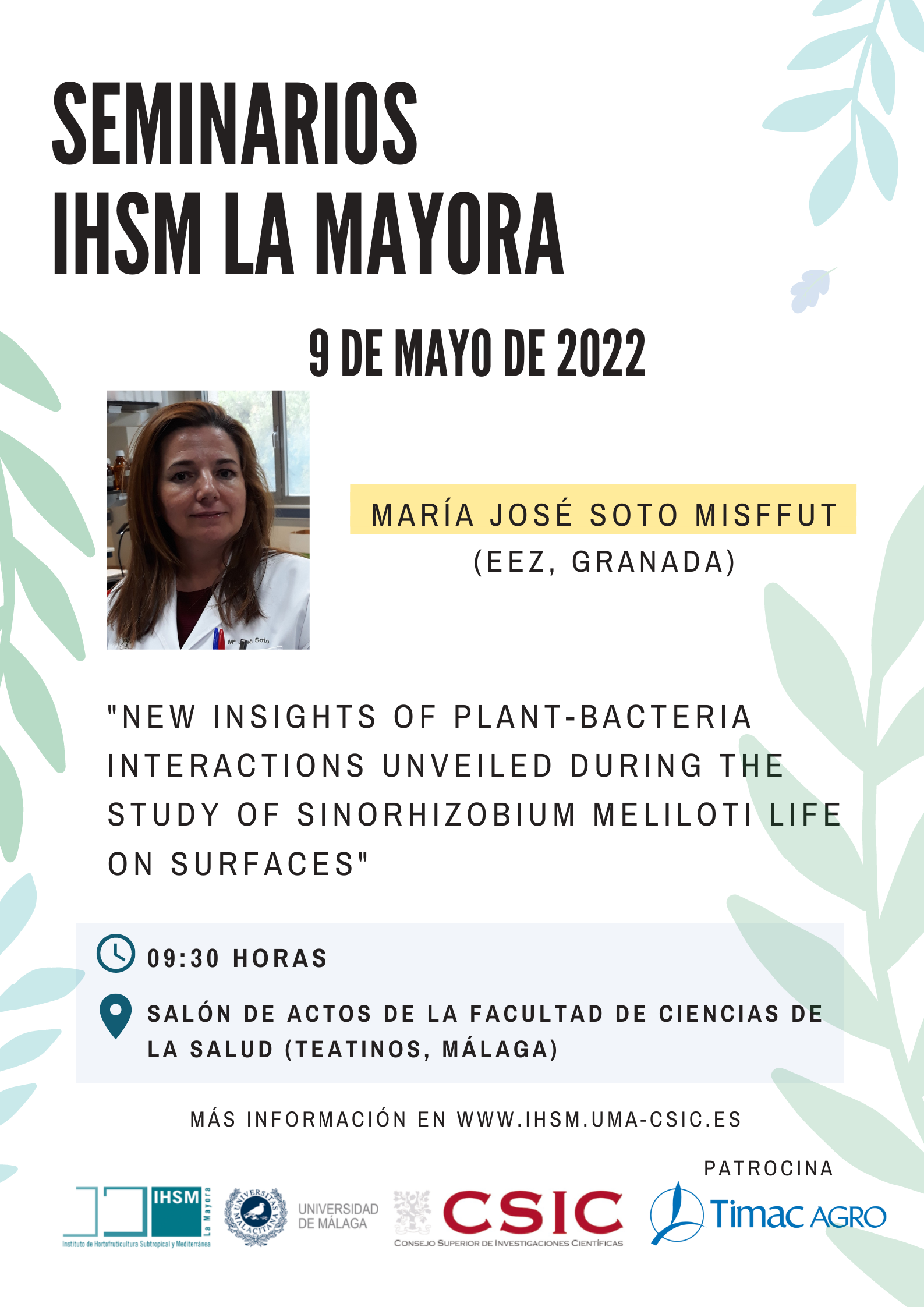
Seminarios IHSM La Mayora - María José Soto Misffut (EZZ, Granada)
Abstract: Sinorhizobium meliloti is a soil bacterium that can establish nitrogen-fixing symbiosis with alfalfa plants, and is used as a model organism in the study of plant-bacteria interactions. Signals and genes involved in nodulation and nitrogen fixation have been extensively studied. In contrast, knowledge about some of the early stages of the symbiotic interaction (e.g. root colonization) remains limited. The ability to spread over, colonize and establish a long-lasting community are desired traits for any host-colonizing bacterium. In our group, we investigate the molecular bases that govern surface motility in S. meliloti as an approach to identify signals and bacterial genes that play a role in plant colonization. Our studies have unveiled the complexity of the mechanisms that underlie surface translocation in the alfalfa symbiont. We have identified bacterial genes that inversely regulate surface motility and biofilm formation and contribute to efficient plant root colonization. During these investigations, we found that S. meliloti releases several lipid volatile compounds, which are overproduced in a mutant altered in surface translocation. Our data revealed that some of these metabolites act as infochemicals that control bacterial surface-associated behaviours and impact plant-bacteria interactions. Advances in our understanding of the mechanism of action of these volatiles will be presented. Biography: Mª José Soto received her Degree in Biology at the University of Granada. After completing her Thesis in the Department of Microbiology at the Estación Experimental del Zaidín (EEZ-CSIC, Granada) studying microbiological aspects of the Rhizobium-legume symbiosis, she obtained her PhD in Biological Sciences in 1993 with an Extraordinary Award mention. She carried out a 3-year postdoctoral stay working on Plant Molecular Biology in the Department of Plant Breeding headed by Prof. J. Schell, at the Max Planck Institute in Cologne (Germany). In 1997, she returned to the EEZ-CSIC to study the role of bacterial genes and plant defense responses in the establishment of symbiosis. In 2004, she was granted a “Ramón y Cajal” award and in 2006 she obtained a Tenured Scientist position at the EEZ (CSIC). Since 2013, she is the Head of the Genetics of Phytobacterial Infections Lab at the same Institute. Her investigations are aimed at gaining new insights on the molecular mechanisms underlying plant-bacteria interactions, by using as a model system the Rhizobium-legume symbiosis and studying rhizobial life on surfaces. This research line led to her current interests, which are focused on investigating the role and mechanism of action of rhizobial volatiles in intra- and interkingdom communication.

